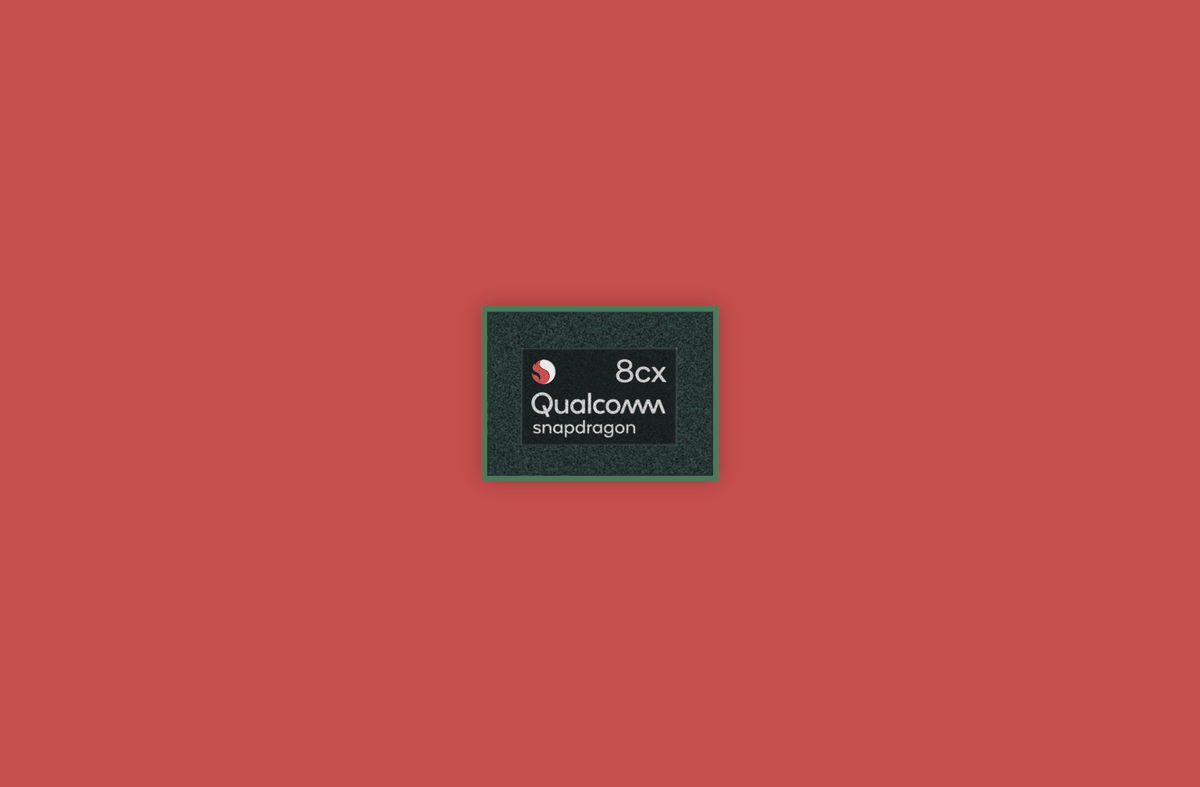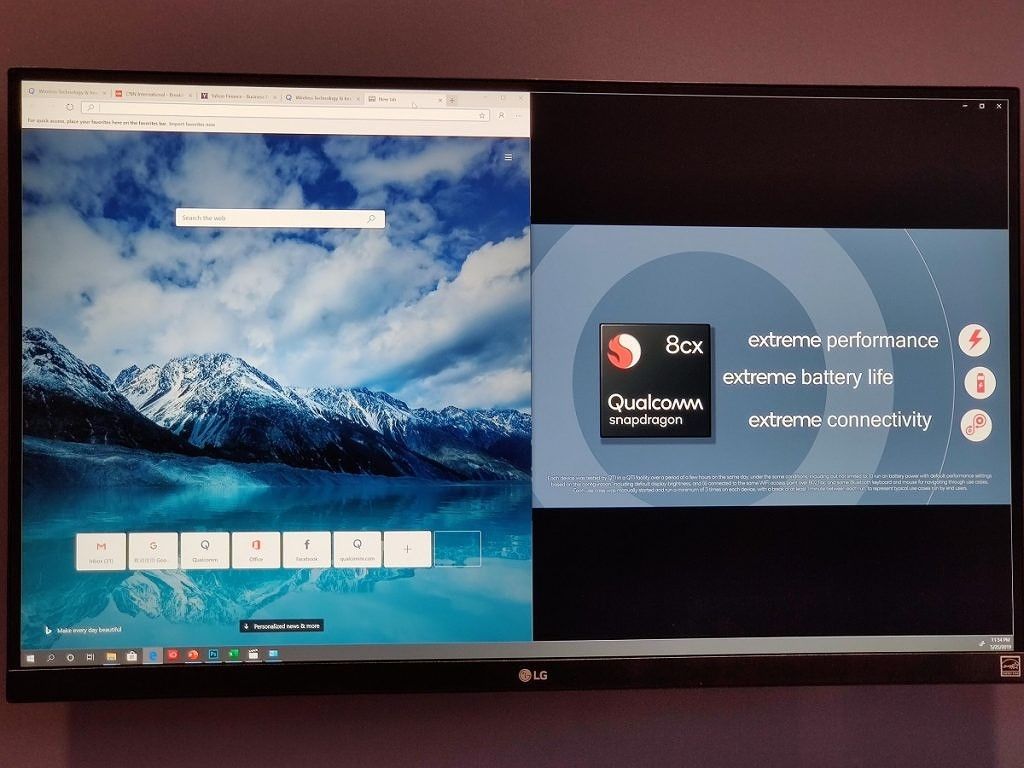Last week at Computex, Qualcomm finally showed the world how its new Snapdragon 8cx mobile platform performs in real-world benchmarks. The 8cx was announced back in December during Qualcomm's Snapdragon Tech Summit, but we didn't have a good idea about how well the platform fares against Intel chips because Qualcomm only shared the raw specifications and a few technical demonstrations. Now that we have a better idea about its performance, we're finally starting to learn more about the product's commercial availability in laptops. Furthermore, Qualcomm may be preparing to launch new, cheaper mobile platforms to bring Windows 10 on ARM laptop prices down to the $300 Chromebook level.
A YouTube playlist I made with the performance comparisons that Qualcomm made to compare the Snapdragon 8cx and the Intel Core i5-8250.
The first Qualcomm Snapdragon 8cx laptops are on the way
In response to an inquiry on Twitter about the commercial availability of Windows on ARM laptops powered by the Qualcomm Snapdragon 850 in Europe, Don McGuire, Vice President of Product Marketing at Qualcomm, revealed that Lenovo will soon begin selling its Yoga C630 in the region. Mr. McGuire says that the availability of the Huawei Matebook E 2019, also powered by the Snapdragon 850, depends on Huawei overcoming its current geopolitical hurdles. To top it all off, he teases that there will be "at least 4" Snapdragon 8cx designs, all of which will be sold in Europe.
New mobile platforms for cheaper Windows 10 on ARM laptops
During the 113th episode of the Mobile Tech Podcast, host Myriam Joire asked Mr. McGuire about the possibility of Snapdragon 8cx-powered Chromebooks (~19:30). In response, Mr. McGuire states that there's nothing stopping that from happening, but that they need to work more closely with Google to make it happen. Furthermore, he teases that Qualcomm is working on new mobile platforms to "scale from a volume perspective in this category [Windows on ARM laptops] over time" (~21:30.)
"...Again you'll hear this in the next several months from us is as we fill in our roadmap. So 8cx is going to be that north star, that guiding light. But then in order for us to really scale from a volume perspective in this category over time, we have to fill in our roadmap. So we have to go from, you know, $800+ devices all the way down to $300 devices where a lot of Chromebooks live, by the way. So you'll see some new platform announcements coming from us soon which will then, I think, unlock a lot of the Chrome ecosystem..." - Don McGuire, VP of Product Marketing at Qualcomm
The company recognizes that its Snapdragon 8cx mobile platform is a winner at the premium tier, but laptops with this chip will be priced several hundred dollars higher than the typical Chromebook. Thus, the company plans to unveil new chips to allow Windows 10 on ARM laptops to compete with lower-priced Chromebooks. Qualcomm has managed to adequately balance battery life and performance with the 8cx platform, so if they can accomplish the same with cheaper chip designs then users can expect to eventually buy some pretty decent Windows on ARM laptops.
Mr. McGuire warns that the company has not made any formal product announcements, however. Though he tells us to keep an eye out for Qualcomm's next Snapdragon Tech Summit, he says that the names "7cx" and "6cx" floated around during the podcast were just jokes. I should know, I was there as a guest on that episode.
Unity, Electron, and Chromium-based Microsoft Edge will natively support Windows 10 on ARM
During the podcast, we also had an interesting discussion about native ARM64 versions of popular Windows applications. Mr. McGuire teased that one popular Windows app will eventually be recompiled for native ARM64 support, though he didn't reveal the app in question. However, we do know that 3 popular apps have been confirmed to eventually run natively on ARM-based Windows 10 devices. Currently, it's possible to run emulated versions of x86-based apps on Windows on ARM machines, albeit at a minor performance cost.
Unity
During the Snapdragon 8cx benchmarking workshop, Qualcomm announced that the popular game engine Unity will support ARM64. At the event, the company showed Unity's test demo running natively on a Windows 10 on ARM laptop powered by the 8cx. Framerates averaged 50 during the demo. Since a lot of PC games are built using Unity, this will hopefully open up the ability to run more games natively on Windows on ARM machines.
Electron
Electron is an open-source framework that uses the Chromium rendering engine and the Node.js JavaScript runtime. Apps like Slack, Discord, Microsoft Teams, Skype, and many others are built using Electron. Qualcomm told us that Electron 6 will be updated to support publishing native ARM builds of applications, which has been confirmed to arrive by August 2019.
Microsoft Edge
Microsoft recently rebuilt its Edge browser using Chromium. You can already download the Chromium-based Edge browser if you're on the latest Windows 10 update, but the app is only available for x86 machines and not ARM64. That will change, hopefully by the end of the year, as Qualcomm says that Microsoft is testing builds of Chromium-based Edge for Windows 10 on ARM.
On the left, you can see Chromium-based Microsoft Edge running natively on an ARM64 Windows 10 machine (a Qualcomm Snapdragon 8cx reference design.)
We're still a few months away from the release of any Snapdragon 8cx laptops. Personally, I'm really excited about them after having seen the platform's performance during the benchmarking session. I don't spend thousands of dollars on laptops because I don't need a lot of power on-the-go, so I'm content with my current Chromebook (the HP Chromebook X2.) I abandoned Windows laptops a few years ago because of the abysmal performance of cheaper laptops, so I'm glad that Snapdragon chips will finally make the performance and battery life of Windows laptops comparable to that of similarly priced Chromebooks.


